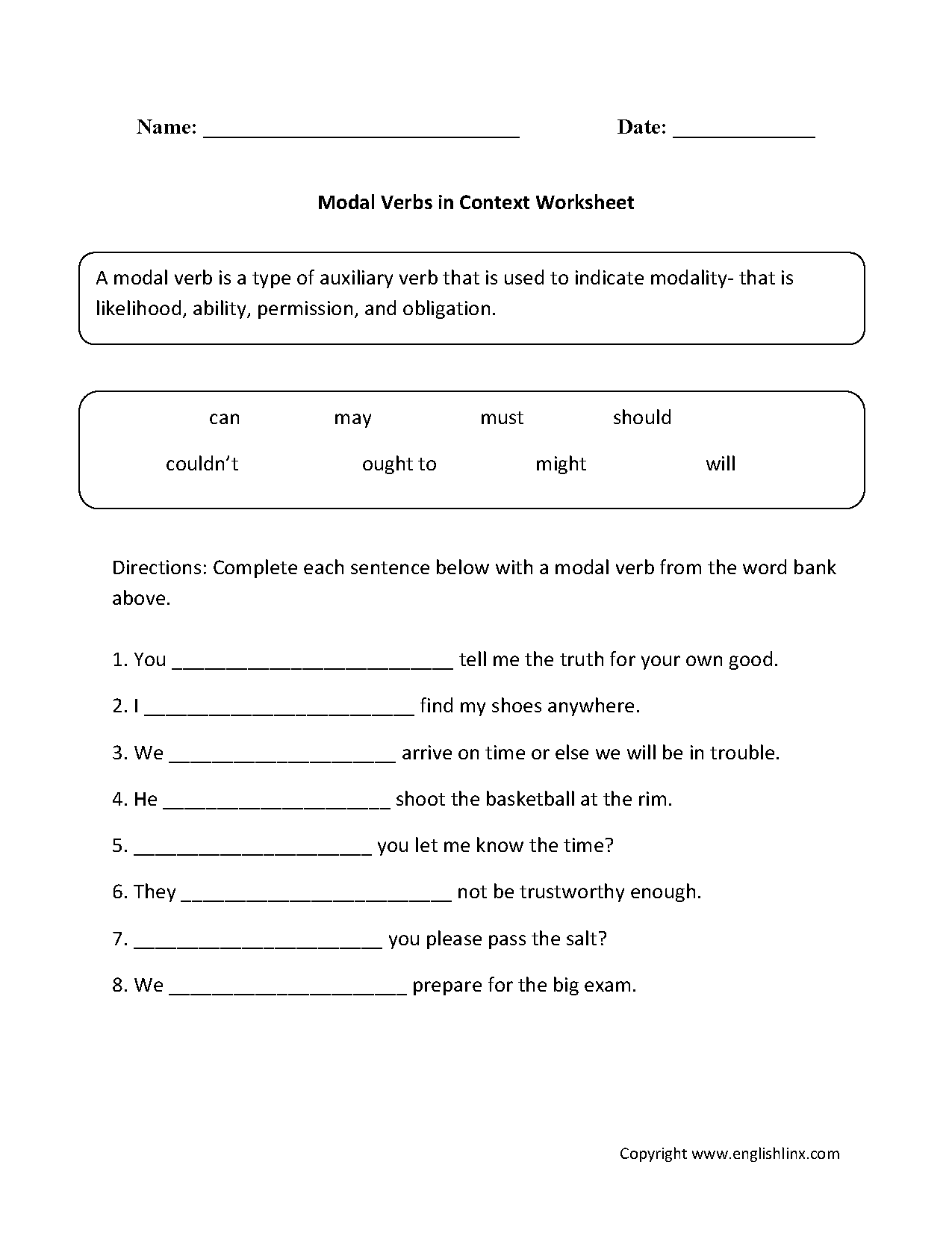

I have a piece of cake, please?” I asked.ģ. When referring to a habit that no longer exists, you can use the expression used to.Įxample: I would fall asleep with the music turned on.Ģ. You can use the modal verbs would for the past tense and will for the present and future to indicate an ongoing or habitual action-something the subject does frequently. Example: We have to wait for her to open this. Use the same modal verbs-must, have to, or need to-as you would with instructions. The negative form conveys that an activity is not required.

Use the modal verbs must, have to, or need to, on the other hand, if you want to command someone.Īn essential activity, such as an obligation, responsibility, or requirement, can be expressed with a modal verb. What if you only want to urge someone to do something? You can use the modal word should if you're offering suggestions or advice without telling someone what to do. In a similar spirit, if you want to request anything from another person, begin your request with either will, would, can, or could. (However, when discussing possibility or authorization in modern use, may and can are also completely valid possibilities.) Traditionally, may is preferred for permission. Use the words "can," "may," or "could" at the beginning of your query if you wish to request permission. The negative form, cannot or can't, similarly indicates that the subject is unable to perform an action. The modal verb can indicate whether or not the subject is able to carry out an activity or display a skill. Use the modal verbs could, may, or could when something is conceivable but uncertain. The modal verbs should and must can be used in certain situations to indicate likelihood without certainty. We don't know for sure, but some things appear possible. Like a modal verb, the word used to, as in "I used to be an English student, too," also has certain properties. Some use highly specific, seldom expressions, such as "I dare say," to explain their situations. While certain modal verbs, like got to, need to, and have to, are more informal, others, like shall and ought to, are archaic and hardly used. Although the ones mentioned above are the most typical, there are other modal verbs.


 0 kommentar(er)
0 kommentar(er)
